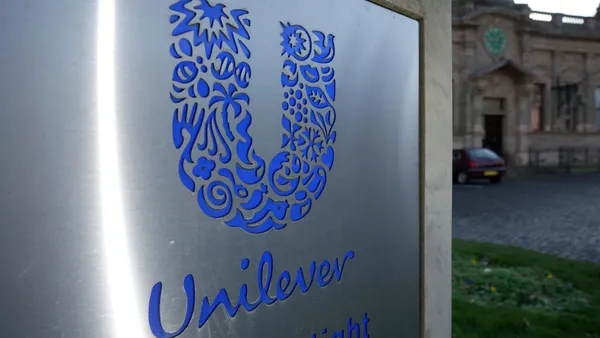Dive Brief:
- Facebook will start building and testing controls to let marketers avoid showing ads next to objectionable topics in its News Feed, the company said in a blog post. The work with a small group of advertisers on the pilot program "will take much of the year," per Facebook.
- The tech giant cited the example of giving a children's toy company a way to select "crime and tragedy" as topics to avoid in its ad placements if it wants steer clear of content related to a new crime show. The company also wants to ensure the new controls protect consumer privacy, per its blog.
- As social media platforms face intense pressure over their role in disseminating objectionable content, Facebook's plan to develop topic-screening tools for marketers arrives as a sign that the social media giant wants to show it is committed to helping brands better control where their ads appear.
Dive Insight:
Facebook's plan to test better ad placement tools is a promise from the company that it wants to make its platform safer for brands and arrives after hundreds of advertisers last summer temporarily boycotted Facebook to protest its policies on moderating hate speech. It remains to be seen whether or not topic exclusion tools can help create a safer social media environment for brands or if such tools can help Facebook regain the trust of some marketers.
Brand safety remains a thorny issue for platforms and marketers, despite some signs of improvements. Major advertiser Unilever recently said it would be lifting its paid advertising freeze on Twitter, Facebook and Instagram because it is encouraged by their commitments to more responsible media. However, Home Depot and Omnicom are facing questions from shareholders over whether their social media advertising helps finance online hate speech, indicating the issue isn't going away.
Facebook already polices its News Feed to ensure that the user-generated content (UGC) doesn't include pornography, hate speech and terrorist propaganda that would make the platform unsafe for brands. Unfortunately, Facebook's artificial intelligence (AI) and human screeners don't catch everything, and it is among the social media companies that have broad legal protections in the U.S. against liability for content that people post. Facebook CEO Mark Zuckerberg also defended free speech on its platform amid calls to crack down on misleading political ads going into the 2020 election.
Amid last year's protests against racism, marketers also expressed growing alarm about hateful online content. Marc Pritchard, chief brand officer of Procter & Gamble, demanded that social media platforms work harder to remove hate speech. Pritchard said, "social media is about 5% of P&G's marketing spending and 150% of our problems … we are tired of wasting time monitoring content," during a virtual conference hosted by the Association of National Advertisers.
Last year's advertiser boycott of Facebook didn't prevent the company from continued revenue growth as marketers sought to reach consumers who were stuck at home during the pandemic, causing social media usage to soar. Facebook last week reported a 53% jump in its profit to a record $11.2 billion in the fourth quarter as revenue increased 33% to about $28.1 billion. The company warned that the biggest threat to ad growth is Apple's planned change to the privacy settings on devices like the iPhone, which are expected to limit marketers' ability to improve the ad targeting.












